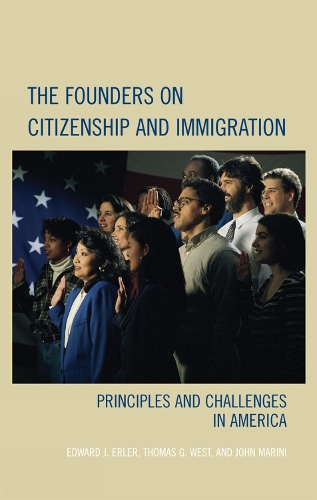
The Founders on Citizenship and Immigration: Principles and Challenges in America
(Paperback)
Publishing Details
The Founders on Citizenship and Immigration: Principles and Challenges in America
By (Author) Edward J. Erler
By (author) John Marini
By (author) Thomas G. West
Bloomsbury Publishing PLC
Rowman & Littlefield Publishers
23rd February 2007
United States
Classifications
General
Non Fiction
Civics and citizenship
325.73
Physical Properties
Paperback
178
Width 141mm, Height 217mm, Spine 15mm
236g
Description
Working with the underlying premise that America's founding principles continue to be vital in the modern era, Erler, Marini, and West take a conservative look at immigration, one of today's most pressing political issues. Characterthe capacity to live a life befitting republican citizensis, as the Founders knew, crucial to the debate about immigration. The Founders on Citizenship and Immigration seeks to revive the issue of republican character in the current immigration debate and to elucidate the constitutional foundations of American citizenship.
Published in cooperation with the Claremont Institute.
Reviews
The economic, social, and cultural concerns about massive illegal immigration from Mexico have long been discussed. But rarely have we examined the massive influx in historical and legal terms of citizenshiphow did the founders and their successors deal with problems of being an American, and what are the effects of massive noncompliance with the laws of the United States Edward J. Erler, John Marini, and Thomas G. West are to be congratulated for their sober exploration of the racial and class considerations that seem to prevent us from enforcing the very laws that we have passed. -- Victor Davis Hanson, Senior Fellow, the Hoover Institution and author of Mexifornia: A State of Becoming
Author Bio
Edward J. Erler is professor of political science at California State University, San Bernardino and a senior fellow at the
Claremont Institute.
John Marini is associate professor of political science at University of Nevada, Reno and a senior fellow at the
Claremont Institute.
Thomas G. West is professor of politics at the University of Dallas and a senior fellow at the Claremont Institute.
